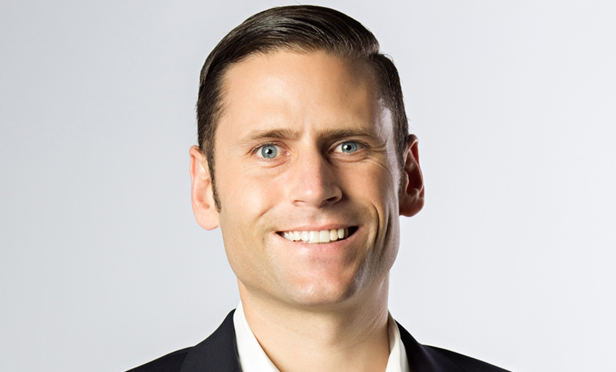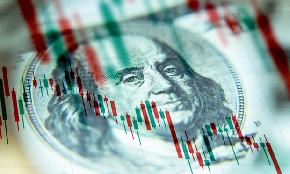 Wohl: “The goal is to have a clear picture on how each presidential nominee, if elected, will impact the commercial real estate industry.”
Wohl: “The goal is to have a clear picture on how each presidential nominee, if elected, will impact the commercial real estate industry.”
CORONA DEL MAR, CA – Presidential elections aren’t known for cooperating with commercial real estate fluctuations. The current wave of uncertainty, however, has this ballot feeling particularly ill timed. So how do the major candidates’ policy proposals fit in for commercial real estate investors? They’re already having an impact as we are seeing many investors pulling the trigger on acquisitions and dispositions now to get in front of what may come, depending on who they think will be elected to office, says Eric Wohl, EVP at Hanley Investment Group.
“Every presidential election creates new uncertainty about the direction of the economy,” said Wohl. “The goal is to have a clear picture on how each presidential nominee, if elected, will impact the commercial real estate industry. While some policy details may be vague or change, all we can do is to interpret the provided information at this time to the best of our ability.”
So, with that in mind, what are the candidates’ policies on capital gains and tax reform? “Hillary Clinton is proposing a sharp increase in the capital-gains tax rate for the highest earners for investments held for less than six years, according to reports,” said Wohl. “Under the current law, gains from assets held for more than a year often qualify as long-term capital gains, which are taxed at a top rate of 20%. Under Clinton’s proposal, for individuals in the top bracket, the tax would start at 39.6% for investments that taxpayers maintained for two years or less, then gradually decrease after that, back to the 20% rate only for assets held for more than six years. Taxpayers outside the top bracket, which starts at $466,951 for married filers, would see no change.”
According to Donald Trump’s website, Trump wants to dramatically streamline the tax process and cut the top marginal income tax rate from 39.6% to 33%. “Trump also advocates lowering the tax rate on business income from 35% to 15% and has advocated that the rate applies to all sorts of businesses, including partnerships and sole proprietorships. Some analysts say that this will provide the loop hole to turn what is now taxed as individual income into ’pass-through‘ business income at that low 15% rate,” Wohl said.
Regarding long-term capital gains, Trump would cap taxes on capital gains at a top marginal rate of 20%, Wohl reports. Trump also proposes to eliminate the net investment income surtax. Given the reduction in rates here, Trump, on his website, says, “many of the current exemptions and deductions will become unnecessary or redundant,” so that “those within the 20% bracket will keep more than half of their current deductions and those within the 25% bracket will keep fewer deductions.”
Clinton would charge a minimum 30% tax on incomes over a million dollars, and she’d raise the total tax rate to 43.6% for those making over $5 million, according to reports. “Additionally, she would limit the value of tax deductions, and require longer holding periods to get the low long-term capital gains tax rate plus other rulings that would make the tax code less favorable to the affluent,” said Wohl.
Trump had tweeted in February, “It is so important to audit The Federal Reserve” – a reference to an “Audit the Fed” Senate bill that the central bank fiercely opposes, Wohl comments. “He has said the Fed played a role in stoking asset bubbles and predicted a ’very massive recession.’ Last year, before the Fed raised rates in December, Trump accused the central bank of keeping interest rates low at the bidding of President Barack Obama, something the White House has denied.”
It doesn’t appear that Clinton has weighed in on whether or not the Federal Reserve should raise its key interest rate, Wohl notes. “However, in May, Clinton came out in favor of reforming the Federal Reserve including reducing the number of bankers in key central bank positions. Clinton called for the Fed to increase the racial and gender diversity of its leadership, and ban private bankers from the boards of the 12 regional Fed banks. In a statement she said: ‘The Fed needs to be more representative of America as a whole,’ adding that ‘common sense reforms—like getting bankers off the boards of regional Federal Reserve banks—are long overdue.’”
Wohl adds, “Although the Federal Reserve officials have talked about the imminent increase in the federal funds rate, some believe that is extremely unlikely the Fed will raise the target rate right before the presidential election and what they do next will be dependent on who sits in the Oval Office. In the meantime, as the November election approaches, hopefully we will get a clearer view on the candidates proposed policies impacting commercial real estate investors, and which candidate will be our new Commander in Chief.” Visit Hanley Investment Group at Booth #1521 at ICSC Western Conference & Deal Making in San Diego.

















 Copyright © 2025 ALM Global, LLC. All Rights Reserved.
Copyright © 2025 ALM Global, LLC. All Rights Reserved.